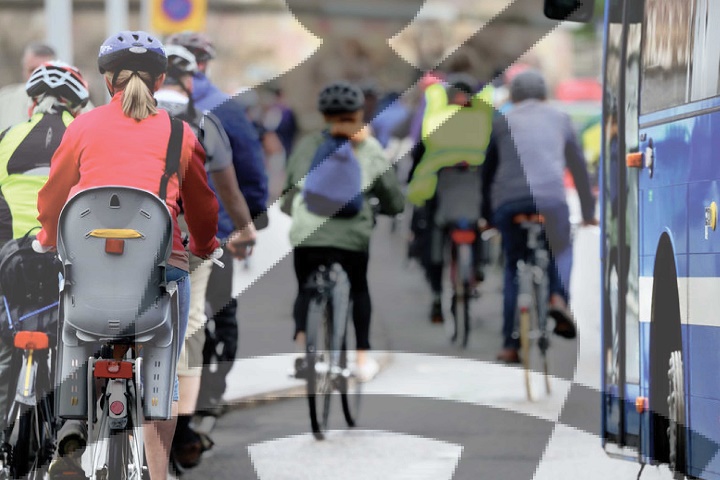
Details of the next generation of online courses for people who commit seat belt and cycling offences have been announced.
The new courses, which will be available to police forces to adopt in early 2019, replace the existing online options which have been in use since 2011. They are designed to raise awareness and encourage people to make positive changes in behaviour.
Ruth Purdie, UKROEd chief operations officer, said: “The seatbelt and cycle courses are unique in the line-up of NDORS courses because they are the only ones that can currently be completed online, without the need for classroom attendance.
 “Their purpose has always been to encourage clients to change their behaviour and in the process to become safer road users.
“Their purpose has always been to encourage clients to change their behaviour and in the process to become safer road users.
“Refreshing and updating the courses ensures we reflect the latest developments in terms of the content we offer, as well as updating delivery mechanisms to ensure the best possible client experience.”
At present, both new courses are in the design stage, with storyboarding expected during December and a first prototype available by the end of January.
Development of the courses is being undertaken by TTC 2000 (part of the TTC Group), while hosting and administration will be looked after by DriveTech.
Dr Fiona Fylan, who heads the UKROEd CDU, said: “It is important for members of the UKROEd team to work closely with the developers to ensure our courses make use of the strongest evidence on behaviour change.
“Having looked closely at the current courses, we have proposed a range of updates. These are now well underway, and we are excited to see the new iterations as we work towards the go-live date in 2019.”
Thanks Hugh, and yes, sorry, my cause and effect wasn’t exactly correct! Of course the traffic incident is caused by other factors, just that the wearing of seatbelts is so simple but critical to minimising harm to driver and passengers.
Colin Paterson, Basingstoke
0
I was just thinking that if a new on line course was designed for tailgating (HGV driver be aware) then it could in some way go to reducing the 75% of all casualties on the roads under the umbrella of Highways England. Those roads being motorways, dual carriageways and major arterial roads not being those roads through urban areas. Although their roads represent less than 1% of tarmac in the UK they are nevertheless suffering from some 6% of all collisions/ casualties.
If that proved successful then maybe local authorities could follow suite as well and that could lead to something like 40% or above reduction of collisions in urban areas. Both tailgating and some of the smidsys at junctions.
R.Craven
--1
Colin: I was implying that one doesn’t need a ‘course’ to understand why a seatbelt can prevent death and injury in a crash and I don’t think that not understanding that is the reason why some don’t bother. Also, not wearing a belt doesn’t cause fatal accidents but it can help mitigate the consequences – like airbags, which also don’t cause crashes.
Hugh Jones
+3
One comment here questions the necessity for a seatbelt education course. The Police refer popularly to the Fatal Four, these are speeding; distractions such as using mobile phones whilst driving; not wearing a seatbelt; and driving under the influence of drink or drugs. They are pretty fundamental. Amazing but true that not wearing a seatbelt is still a cause of a significant number of fatal accidents. The “belt up” message is still, sadly, critical!
Colin Paterson, Teddington
+1
Is this going to be the punishment of the future where offenders will have to undergo a course of advice or training on their computer. At home and no doubt at their own convenience. Is this just the beginning?
Who knows it might work. For some. Is it worth considering?
R.Craven
0
Are ‘cycling offences’ offences committed by cyclists in which case how are they detected, or is it offences by motorists affecting cyclists?
Also, is it really necessary to have a ‘course’ for seat-belt offences? What next ‘faulty brake-light’ courses?
Hugh Jones
+5
Isn’t this an excellent opportunity for road safety teams in local authorities to run such courses?
I am not sure why the running of speed awareness and other enforcement initiated courses are being left to the private sector. Are there any good reasons why the public sector cannot be involved?
Rod King, Warrington
+8